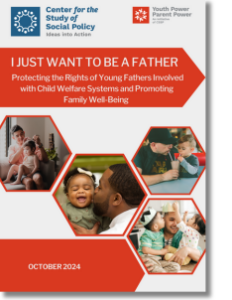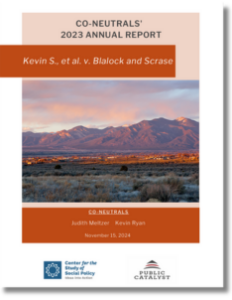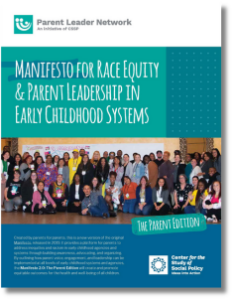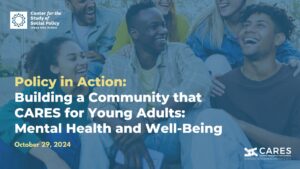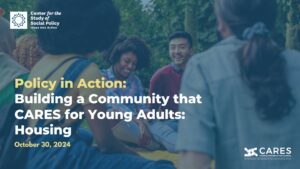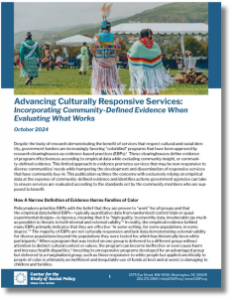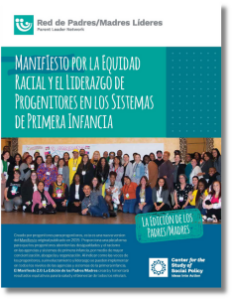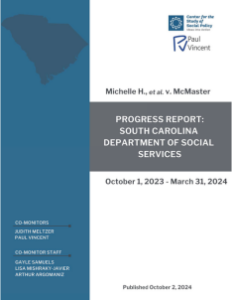Join us on Thursday, December 12, 3-4 pm ET / 12-1 pm PT for our Strengthening Families Webinar: "I Just Want to Be a Father."
During the webinar, young parents in foster care will share recommendations on addressing systemic barriers to young fathers’ involvement with their families and how to support co-parenting for young parents in foster care. The webinar is based on our recently published paper, “I Just Want to Be a Father: Protecting the Rights of Young Fathers in Foster Care and Promoting Family Well-Being,” co-produced with two young parents who recently aged out of foster care.
The paper was produced by the Brighter Futures Workgroup, a multigenerational, cross-sector New York City-based network led by young parents who are or have been in foster care in NYC. The paper focuses on the experience of young fathers and mothers in New York City who received little to no father-focused and co-parenting casework or support.
